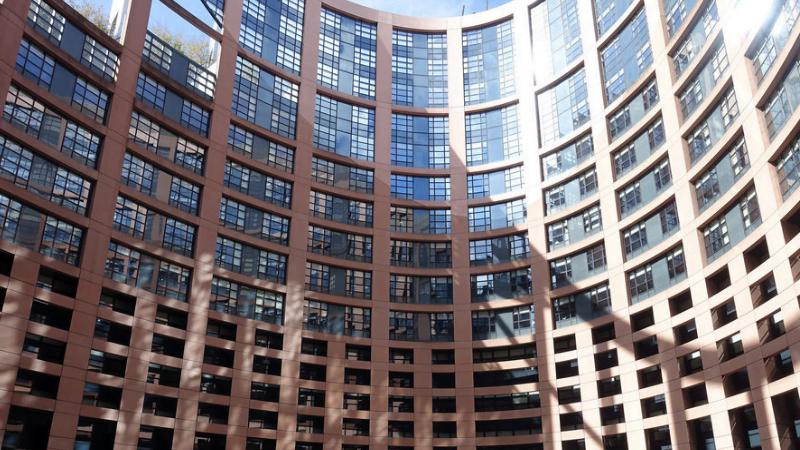Concerted propaganda and disinformation campaigns are limiting democracy, human rights and the rule of law throughout the EU, according to a recent report commissioned by the European Parliament (EP).
Entitled, ‘Disinformation and Propaganda – Impact on the Functioning of the Rule of Law in the EU and its Member States”, the aim of the report was to assess the impact of strategic political propaganda and disinformation disseminated through social media platforms.
From widespread disinformation in the Brexit campaign, to allegations of micro-targeting and disinformation at the hands of increasingly authoritarian governments, the impact of this climate of disinformation is a growing cause for concern.
Propaganda and disinformation distort and dominate the public conversation and pervert the process of democratic decision making. And when this process leads to political success the Party in government then has free reign to capture the State and deconstruct the constitutional system, the report notes.
It also adds that once this process starts and gains traction, it is very difficult to stop, resulting in systemic failures in democratic and rule of law processes. The prevalence of propaganda is often a symptom of deeper structural problems within a society and media environment, including declining freedom of expression.
The report also notes a growing trend in the “populist justification of acting on behalf of ‘ordinary’ people and ignoring the minority and critical voices”. This deconstruction of democratic institutions is the hallmark of such populist regimes.
But it is not just false information that poses the greatest risk to democracy. Rather, it is the dissemination of information in a targeted way that is designed to “manipulate or divide the audience, or incite hostility against social groups”.
This information, carefully curated to divide societies and to pit groups of people against each other, is then spread via micro-targeted political advertising, paid trolls and even political bots, according to the research.
Susceptible users become weaponised as an instrument for spreading propaganda and disinformation
The use of these strategies by the Party in government has been proven in Malta. A probe into pro-government secret and closed online groups revealed they were managed by government employees and used to target journalists and activists critical of the government.
The now-defunct Cambridge Analytica was at the centre of a global scandal on election rigging an the manipulation of voters through the use of their private data. A UK Parliamentary Committee recently found there were dealings between SCL Group (the parent organisation of data analytics firm Cambridge Analytica), Henley & Partners chairman Christian Kalin and Labour Party Leader Joseph Muscat prior to the 2013 Maltese elections. Both Henley & Partners and the Malta Labour Party denied the report’s findings.
Facebook in particular was found to have had an increasingly powerful effect on democratic public discourse over the last 10 years. By harnessing ever more sophisticated ways of targeting and tailoring their messages, these platforms have come to be a primary influence in shaping public opinion.
The Labour Party in government is a heavy social media spender. Between 2013 and 2017 some €2.5 million was spent on social media advertising – the Prime Minister’s office alone spent over €553,000.
But social media users are not just targets – they are also channels for spreading disinformation. “Social media brought about a new form of public sphere that is more inclusive than any other public sphere before. In that context, people who are more susceptible to manipulation tend to amplify misinformation and disinformation through their posts, comments, likes and shares, and they form the electoral basis for populist politicians”.
Users are also “deluded” into believing that the information they come across is spontaneous, citizen generated, and the same for other users, when in actual fact it is not. Much of the material that many believe to be objective is actually strategic, political and micro targeted specifically to them.
As a result, susceptible users become weaponised as an instrument for spreading propaganda and disinformation. The study suggests that social media platforms should create an architecture that provides a fair and equal setting for all opinions to be heard.
Stating that “platform providers should not be responsible for third party content”, they do however suggest that they should be more transparent in how their platforms work. Algorithms, ensuring there is discrimination between different points of view, the distinction between sponsored and non-sponsored ads, the identification and disablement of fake accounts, and the protection of user privacy, are all suggested as measures that need to be implemented.
“Dominant social media platforms should accept a certain level of social responsibility because of their impact on the public sphere, just like traditional mass media companies do”, the report notes.
The authors also suggest that member states need to have in place “robust precautionary measures” that will protect them against future political forces that could take power and replace a constitutional government with a more autocratic one.
Right now, fear is being stoked for political gain in democratic populations, and the threat to democracy from the spread of misinformation and divisive targeting is increasing, according to the report.
There is little that can be done about it unless member states take significant action of their own accord. This, however, is something that is unlikely to happen when the power that is available via these methods, is so vast.












